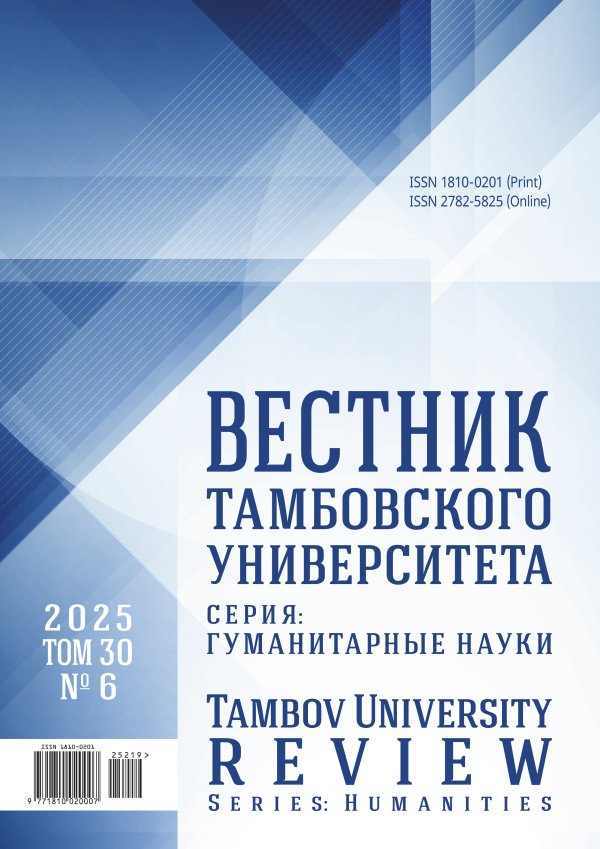Карты, соль, табак: торговые ограничения Германского таможенного союза в 1833 г.
- Авторы: Диомидова М.И.1
-
Учреждения:
- ФГБОУ ВО «Московский государственный университет им. М.В. Ломоносова»
- Выпуск: Том 29, № 3 (2024)
- Страницы: 847-856
- Раздел: ИСТОРИЯ ЗАРУБЕЖНЫХ СТРАН
- URL: https://bakhtiniada.ru/1810-0201/article/view/297846
- DOI: https://doi.org/10.20310/1810-0201-2024-29-3-847-856
- ID: 297846
Цитировать
Полный текст
Аннотация
Актуальность. Цель исследования заключается в выявлении особенностей регулирования товарного сообщения в отношении нескольких предметов торговли. Исследование направлено на всестороннее изучение ограничений германского таможенного договора 1833 г., которые коснулись внутренней и внешней торговли. Проведенный анализ выявил комплекс причин, способствовавших введению особых распоряжений в отношении важных товаров. Изучение частных аспектов таможенных преобразований открывает новые перспективы в исследовании этой тематики и дополняет картину торговых взаимоотношений на германском пространстве в 1820/30-е гг.Материалы и методы. Основным источником исследования стал «Договор о таможенном объединении» от 22 марта 1833 г. Также были привлечены многочисленные заметки коммерческой прессы того времени, освещавшей торговлю и таможенные преобразования. Методы анализа и синтеза позволили всесторонне изучить источники и обозначить основные тенденции в отношении торговых ограничений этого периода.Результаты исследования. Детальный анализ источников выявил наиболее важные предметы торговли на германском пространстве, представлявшие интерес для большинства правительств. Это были предметы государственных монополий или источники больших таможенных сборов, многие годы наполнявших казну немецких стран. Возникшая угроза потери этого стабильного дохода из-за учреждения Германского таможенного союза и обобществления таможенных доходов привела к принятию компромиссных мер в отношении нескольких товаров. Игральные карты, соль, табак и алкогольная продукция подлежали особо тщательному контролю, их торговля регламентировалась отдельными положениями.Выводы. Ограничения торговли стали компромиссной мерой договора о таможенном объединении, принятой с целью сохранения государственных доходов. Они были также обусловлены различными локальными законами в отношении рассматриваемых товаров и направлены на защиту немецкой промышленности от внешней конкуренции.
Ключевые слова
Об авторах
М. И. Диомидова
ФГБОУ ВО «Московский государственный университет им. М.В. Ломоносова»
Автор, ответственный за переписку.
Email: mariadiodio@gmail.com
ORCID iD: 0000-0002-5761-9686
преподаватель кафедры иностранных языков
119991, Российская Федерация, г. Москва, Ленинские горы, 1Список литературы
- Мальцев А.А., Чичилимов С.В. Истоки противостояния фритредерства и протекционизма в экономической теории // Теоретическая экономика. 2021. № 12 (84). С. 69-81. https://doi.org/10.52957/22213260_2021_12_69, https://elibrary.ru/jpdgkl
- Gehlen B., Marx C., Reckendrees A. Ambivalences of nationality – Economic nationalism, nationality of the company, nationalism as strategy: An introduction // Journal of Modern European History. 2020. Vol. 18. Issue 1. Р. 16-27. https://doi.org/10.1177/1611894420901427
- Даценко П.А. Преемственность или разрыв? О конституционных актах Германского Союза 1815 и 1820 гг. // Научный результат. Социальные и гуманитарные исследования. 2021. Т. 7. № 3. С. 62-70. https://doi.org/10.18413/2408-932X-2021-7-3-0-7, https://elibrary.ru/bsbrru
- Gruner W.D. Bavaria and the South German States at the origins of the German question in the 19th century // Rivista di Studi Politici Internazionali. 2020. Vol. 87. № 4. Р. 491-516.
- Коваленко М.И. Формирование Германского таможенного союза: на пути к «Договору о таможенном объединении» 1833 г. // Исторический журнал: научные исследования. 2020. № 4. С. 170-187. https://doi.org/10.7256/2454-0609.2020.4.33580, https://elibrary.ru/ajnzhp
- Hahn H.-W. Geschichte des Deutschen Zollvereins. Göttingen, 1984. 214 S.
- Wehler H.-U. Deutsche Gesellschaftsgeschichte: in 5 bde. Bd. 2: Von der Reformära bis zur industriellen und politischen “Deutschen Doppelrevolution” 1815–1845/49. München, 1987. 925 S.
- Keller W., Shiue C.H. Market integration and institutional change // Review of World Economics. 2020. Vol. 156. Issue 2. Р. 251-285. https://doi.org/10.1007/s10290-019-00362-1
- Фролов А.С. Процесс формирования Германского таможенного союза и его роль в истории Германии первой половины XIX века // Известия Российского государственного педагогического университета им. А.И. Герцена. 2007. Т. 16. № 40. С. 290-295. https://elibrary.ru/mipozp
- Lencucha R., Drope J., Magati P. et al. Tobacco farming: overcoming an understated impediment to comprehensive tobacco control // Tobacco control. 2022. Vol. 31. Issue 2. Р. 308-312. https://doi.org/10.1136/tobaccocontrol-2021-056564
- Burg P. Die deutsche Trias in Idee und Wirklichkeit. Vom alten Reich zum Deutschen Zollverein. Stuttgart, 1989. 402 S.
- Braun F. Die Spielkartenfabrik B. Dondorf: in 16 bde. Bd. 4: Braun Schriftenreihe “Spielkarten”. Darmstadt: Selbstverl., 1991. 205 S.
- Riecke K. Die Hemmnisse des freien Verkehrs im Innern des Deutschen Zollvereins. Erster Artikel. Die Spielkarten- und Salz-Monopole der einzelnen Zollvereine-Staaten // Zeitschrift für die gesamte Staatswissenschaft. 1861. Bd. 17. S. 143-207.
- Offenbächer A. Geschichte der Besteuerung des Salzes in Deutschland bis zum Jahre 1867 // Finanz Archiv. 1905. Vol. 22. № 1. S. 222-280.
- Seybold G. Württembergs Industrie und Außenhandel vom Ende der Napoleonischen Kriege bis zum Deutschen Zollverein // Veröffentlichungen der Kommission für geschichtliche Landeskunde in Baden-Württemberg. Stuttgart: Kohlhammer, 1974. (Reihe B, Forschungen). 317 S.
- Kutz M. Deutschlands Aussenhandel von der französischen Revolution bis zur Gründung des Zollvereins. Wiesbaden, 1974. 395 S.
- Christiansen R. Vom Deutschen Zollverein zur Europäischen Zollunion. Bonn: Stollfuss, 1978. 47 S.
- Kamnitzer H. Die wirtschaftliche Struktur Deutschlands zur Zeit der Revolution 1848. Berlin: Volk und Wissen Volkseigener Verlag, 1952. 280 S.
- Bowring J. Bericht über den deutschen Zoll-Verband an Lord Viscount Palmerston / Aus dem Englischenüberlegt von Dr. F.G. Buck. Berlin, 1840. 188 S.
Дополнительные файлы









